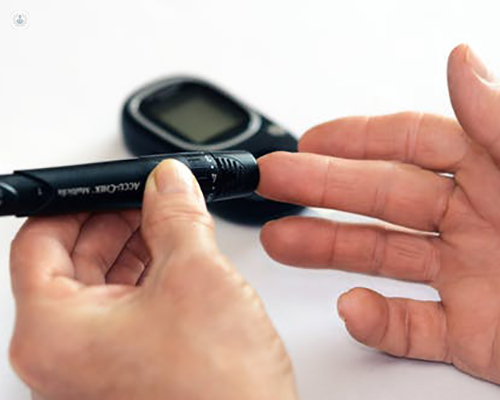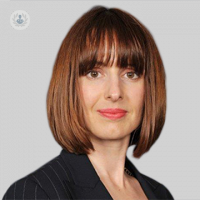Diagnosing diabetes
Autore:There are a number of different types of diabetes. While 90% of people have type 2 diabetes, 10% have type one or insulin-dependent diabetes. Diabetes can be difficult to manage, with a person with diabetes making an average of 30 decisions every day that can affect blood glucose levels.
Diagnosing diabetes can also be complex. Dr Ana Pokrajac looks at the early signs of diabetes and talks about how we can diagnose the different types.

What are the early signs of diabetes?
The problem with type 2 diabetes is that in most cases, symptoms present gradually. Patients don’t feel ill suddenly, as it takes a while for signs to develop.
Symptoms of type 1 or insulin-dependent diabetes can be very dramatic and sudden and patients often need immediate hospitalisation.
Symptoms experienced can include:
- Tiredness
- Chronic thirst
- Dehydration
- Patients may be drinking a lot of fluids
- Using the toilet often to pass urine
- Waking up at night to go to the toilet
- Stomach pain
The importance of a correct diagnosis
While many people distinguish diabetes between type 1 and type 2, there are more types of diabetes, such as MODY ( Maturity Onset Diabetes of the Young ) and LADA (Latent Autoimmune Diabetes of Adulthood ). It’s very important that a patient receives the correct diagnosis. The type of diabetes and the insulin reserve are relevant to treatment options.
LADA is a rarer form of diabetes, similar to type 1, in which insulin-producing cells in the body are being attacked by an autoimmune process. However, with LADA, although insulin-producing cells are being destroyed, it can take up to 20 years for a person to become insulin-dependent.
How quickly a person becomes completely insulin-dependent depends on a number of factors related to diet and lifestyle; the more carbs a person eats, the more insulin they need, the faster their insulin reserve dries up.
Type 2 diabetes
Type 2 diabetes is more common and runs in families. Anyone with a first degree relative with type 2 diabetes will have a 50% chance of developing it. While we cannot change our genetic make, we can lead a healthy lifestyle to minimise chances of developing type 2.
There are a lot of different variants of type 2. It is inherited through an interplay of several genes, there are still no means to distinguish clearly between them. However, with a clinical picture and expertise, the best treatment can be chosen.
Can you test for diabetes at home? Is there a pre-diabetes test?
There is no home test to detect diabetes. However, if you experience tiredness, excessive thirst and frequent urination, seek medical attention.
If you have a family history of type 2 diabetes and other risk factors, your doctor will calculate your risk and, depending on the results, offer you a screening test for diabetes. In the UK, if you are found to have pre-diabetes, your doctor will put you on an at-risk register.
If you are in the at-risk group, you will have a blood test once or twice a year to check your HbA1c level (blood sugar level over the last three months). You will also be given advice about lifestyle measures that will help to prevent type 2 diabetes.
What is a diabetes screening test? Are there different tests for type 1 or 2?
If your doctor thinks you have diabetes or that you are at risk, they will screen you for diabetes by doing a blood test for glucose and HbA1c. HbA1c is a measure of the sugar coating on red blood cells that they acquire over their 3-month long life span in the bloodstream.
Screening for both types of diabetes is the same. To distinguish the type of diabetes, a medical history, clinical picture and a number of further tests are being taken into account. In order to measure insulin reserve, the level of C-peptide in the blood can be tested. C-peptide is a by-product of insulin secretion.
How does my specialist decide which treatment plan is best for my diabetes?
Treating diabetes can be complex because no two people are the same. Any healthcare professional should recognise signs of diabetes, but a specialist endocrinologist will have the expertise to differentiate between types of diabetes in situations where the difference is not obvious.
People with type 1 diabetes and LADA will depend on insulin for life. However, people with type 2 diabetes can benefit significantly from diet and lifestyle changes and other medications before requiring insulin. Apart from insulin reserve, insulin sensitivity/resistance are important factors to take into account when treating a patient. Body mass index (BMI) and waist-to-hip ratio are indicators of insulin resistance. Some associated features such as fatty liver disease also need to be taken into account when deciding on the best medication for a particular patient.
There are some newer classes drugs for type 2 diabetes that help to preserve insulin reserve. The longer the person with type 2 diabetes lives, the greater the chance for insulin-producing cells to get exhausted and eventually stop working.
Treatment of diabetes has been moving towards a more personalised approach.
If you’d like more information about diagnosing diabetes and diabetes in general, contact Dr Ana Pokrajac for more information.


